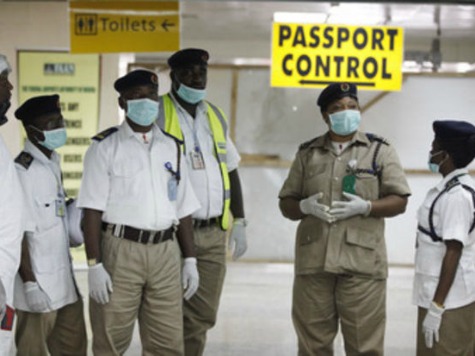This article originally appeared at the National Journal:
August 1, 2014 The Nigerian government announced Thursday that it had started screening passengers at international airports for signs of Ebola after a passenger showed up in Lagos suffering from the illness, which kills up to 90 percent of the people infected with it. Treatment options are extremely limited.
Nigerian airport authorities will be checking passengers who just arrived from Sierra Leone, currently under a state of emergency, and they’ll be looking for fever, since an elevated temperature is considered a sign of Ebola. If the passenger is presenting with higher than normal temperatures, screeners would subject the passenger to a blood test.
Ebola is moving into more countries across Africa, but not as quickly as is alarm. South Africa announced Thursday that it was in the process of outfitting airports with thermal scanners to detect feverish passengers. In many ways, it’s a repeat of 2009, when airports around the world brought in thermal scanners to look for passengers who were presenting with fever and suspected bird flu.
Ebola has arrived in the United States in the form of a victim who is here for treatment under careful observation. The CDC confirmed that at least one Ebola victim is headed out of Africa to the United States to be treated in Atlanta. The patient will be flown in a special N173PA jet.
“The plane will be arriving at Dobbins Airbase in Georgia, and from there the patients will be transported on to whatever the medical facility they’re going to be treated in. But that’s the limit of our involvement,” Pentagon spokesman Rear Adm. John Kirby said Friday. Authorities didn’t disclose the patient’s name but researchers know of at least one American doctor, Kent Brantly, of Fort Worth, Texas, who was working to staunch the outbreak in Liberia and who picked up the illness.
The good news is that neither the White House nor the epidemiologists that spoke to Defense One expects Ebola to have nearly as deadly an effect in the U.S.as it is having in Africa, where more than 729 people have already died.
The bad news is that thermal screenings of the international flying population at airports are not likely to yield much by way of improved safety.”All I am aware of, in terms of U.S.military involvement, is that we have a couple of Army researchers down in Africa, in Liberia, right now who have been for some time working on this particular virus,” Kirby said.

COMMENTS
Please let us know if you're having issues with commenting.